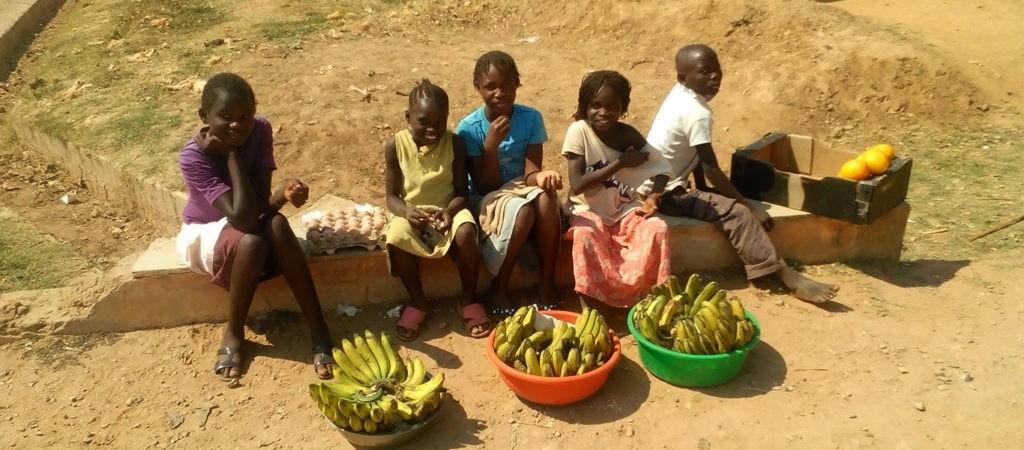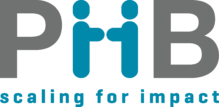Finance
Supporting the design and implementation of digital last-mile delivery channels for payments, credit, savings and remittances built upon scalable use cases.
PHB is a pioneer in the development and delivery of Digital Finance. Working with Impact Makers - to extend the reach of affordable and relevant financial services - we co-create the design and implementation of innovative products and last mile-delivery channels for payments, credit, savings and remittances – all intended to be cross-cutting and enabling more people to better control and manage their financial lives.
We collaborate and coordinate with partners and stakeholders like you to develop and promote Conducive Ecosystems to embrace Digital Finance and seek alignment across issues related to policy, product, providers, partners and the people who we aim to empower.
Working together we can identify viable and scalable use cases from across the payments spectrum - promoting interoperability, “coopetition” and improving the systems and processes that are needed to continually strengthen and extend the infrastructure of digital finance. Supporting expansions of digital credit, e-KYC, blockchain and other technologies keep PHB at the leading edge of Digital Finance.
PHB instils cross-functional teams with the skills and confidence needed to lead digital transformations with successful marketing, products and compliance regimes. Across Africa and Asia, PHB has impacted the lives of millions of end-users and created new on-ramps for them to participate in the digital economy.
Agriculture
Designing impactful digital agricultural value chain tools and processes to collect, store, analyze, and share precision insights for all stakeholders.
PHB grounds the focus of our work in digital agriculture with the realities of smallholder farmers. It is hard to grow and sell enough crop to support and feed a family. Managing cash flow is difficult, and that lures many millions to migrate to overcrowded urban centres in search of paid work, at least for a while.
We address these challenges with a combination of approaches built upon extensive experience digitizing value chains and working with smallholder growers of rice, chilly, coffee, cocoa, tea and dairy from Cote d’Ivoire, Ghana, Nepal, Indonesia, Papua New Guinea to Uganda. By starting with an Activity Based Costing assessment across the value chain and we can identify how the various actors can support, promote and benefit from digitization through inclusive participation: Our solutions will work if all actors see a positive Value Proposition.
With these affirmative Value Propositions in place, additional interventions can provide layering of mobile information services regarding local information such as weather, market prices or pest management – like the farmers having an ‘electronic agricultural extension worker’ always by their side. To further expand to rural and remote areas – PHB brings insights to promote conducive ecosystems of local government, extension workers, payment processors and merchants to serve as the backbone for sustainable, rural digital economies.

Social Protection & Humanitarian Assistance
Bridging the digital divide for the communities who are off-grid and cut-off from the world of opportunities due to lack of access to identification, finances or means of support.
The needs of an estimated 41.3 million internally displaced people (IDPS) and 25.9 million worldwide refugees fleeing conflict and instability go well beyond the initially vital food, shelter and other more traditional forms of aid, especially if we keep in mind that the average refugee is displaced for a decade. The shocking length of displacement and the fact that 60% of refugees are living in cities and communities – not refugee camps – means that handing out goods is no longer sufficient. Refugees, who may be displaced for generations, need to manage their savings and any income flows they may receive or generate.
Remittances have classically been the most reliable sources of income for millions of families around the world (be them economic migrants, IDPs, refugees, asylum seekers, etc.). Remittances linked to existing mobile technology help overcome geographic barriers, connect more recipients to formal systems and reduce costs. Benefits include eliminating the risks of travelling long distances to conduct cash transactions and increased potential to build an economic base. The long-term impacts can benefit families, and regional economic stability as even modest economic activity helps raise the remittance recipient’s quality of life through better access to health services, material necessities and education. During the G20 2011 summit, Bill Gates said, “If the transaction costs on remittances worldwide were cut from where they are today at around 10% to average 5%...it would unlock $15bn a year in poor countries”[1].
PHB has experience developing several projects aimed at addressing the issue of affordable and accessible digital financial services, including remittances, for displaced populations and migrants as well as the digitization of bulk payments for social transfers and financial literacy training for refugees. We have worked hand-in-hand with MFIs, Central Banks and International Organizations to offer vulnerable populations, migrants and forcibly displaced populations access (and knowledge) to digital financial services making the delivery of their payments more effective and transparent. Furthermore, by providing access to digital financial services, we are not giving them prescriptive solutions, that entrap them in a system of dependence but providing them with the tools and resources they need to become self-reliant. In the short-term, for forcibly displaced populations, this means emergency electronic payments from aid agencies (cash relief) and, in the longer-term digital money transfers, salaries and mobile banking. A secure, pro-market solution that helps to integrate forcibly displaced populations into their new host economy.
Education
Developing programs, training and digital tools that support education for both supply-side stakeholders and across all our focus communities.
PHB supports education within the digital economy by addressing the friction points that limit access to learning. With finance as a foundation, we have worked on easing the ability for digital payments for school fees and the development of new financial tools to support youth in their pursuit of education in Lao PDR. Whether educating about digital transformation or using digital means to teach about non-digital areas, PHB has supported curriculums in mental health, agriculture, financial literacy and advanced technical training. In Uganda, we have developed and provided financial literacy curriculum and training for refugees to understand, select and use financial services that fit their needs. Addressing the supply side of the digital economy, PHB has developed and delivered bespoke training to financial service providers and policymakers on the topics of digital finance and interoperability.
Sustainable Energy and Climate Adaptation
Harnessing the power of technology to support the implementation of sustainable energy and climate adaptation mechanisms.
Although impoverished people are more vulnerable to the impacts of climate change, they lack access to adequate mechanisms to cope and adapt.
Climate change is expected to “push more than 100 million people back into poverty over the next fifteen years” [1], the World Bank estimates. The 2.5 billion smallholder farmers, herders and fisheries - who depend on the climate and natural resources for food and income - are the most at risk. Extreme weather events like hurricanes, wildfires and droughts threaten their agricultural production and health, with potential to increase last-resort migrations, diseases, conflicts and hunger.
Because making an impact at scale can only be illusory if climate adaptation is not taken into consideration, PHB believes in taking targeted action to help people cope with climate shocks. Access to finance, such as government subsidies and insurance mechanisms, can help farmers manage agricultural risks through timely indemnities and pays-outs; Access to information, such as accurate weather forecasts and advice on how to transition to more rain-resistant crops, can help farmers be better prepared and more resilient in front of climate change hazards.
Digital technologies can be powerful tools for reducing the impacts of climate change – both at a preventive or coping level. For example, pay-as-you-go and digital payment technologies can increase the take-up of clean energy; mobile money-enabled insurance (including rainfall index insurance) eases access to financial protection that smallholder farmers need to deal with unpredictable weather patterns; mobile money-enabled social cash transfers provide immediate support to affected communities; climate-smart finance – or green finance- encourages marginalized communities to use more sustainable environmental-friendly practices; etc.
PHB has supported the implementation of sustainable energy and climate adaptation mechanisms. In Mali and Burkina Faso, we have for example supported SNV’s Sustainable Technology Adaptation for Mali’s Pastoralists (STAMP) project, in which satellite-gathered data is made available to nomadic herders, enabling them to find water and biomass for their animals.
[1] Managing the impacts of climate change on poverty- Source: Global Facility for Disaster Reduction and Recovery (GFDRR)
